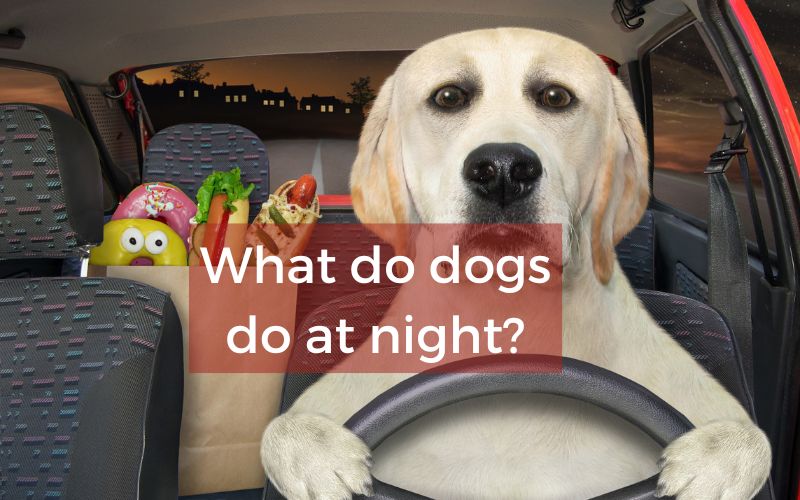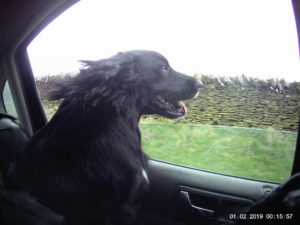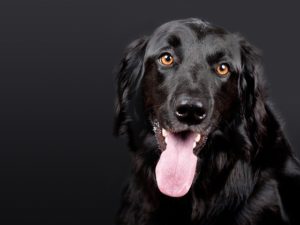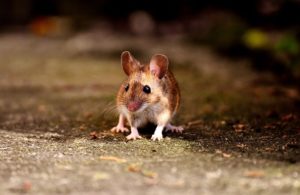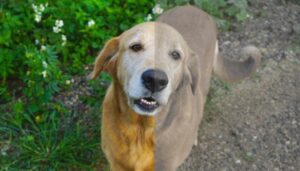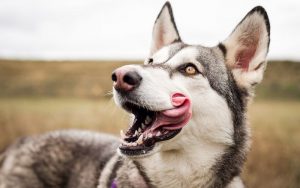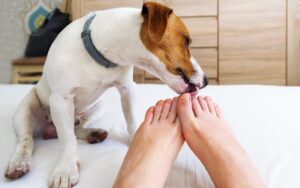Have you ever wondered what your dog does at night when you’re asleep?
Chances are, they’re not just sleeping like you are. Dogs are active creatures, even when we’re not around.
Here are a few things your dog might be up to when the sun goes down.
Some dogs will sleep soundly through the night, just like their human owners. Others may be more restless, and may pace around the house or even howl or bark intermittently. And others may be somewhere in between, sleeping soundly for part of the night but then becoming restless and needing to move around later on.
Dogs sleep at night
Most dog owners have experienced the frustration of trying to sleep through the night while their dog seems to be wide awake and pacing around the room.
It can be tempting to assume that dogs sleep a lot at night, but the truth is that they tend to sleep much less than we do.
On average, dogs spend about 12-14 hours per day sleeping, compared to the average human who sleeps for 7-8 hours.
However, dogs don’t sleep evenly throughout the day like humans do.
They tend to have two main periods of sleep, one in the early morning and one in the late afternoon/early evening.
In between these two periods, they are usually up and about, although they may take a few shorter naps during the day.
Dogs will eat at night if they can
Dogs are notorious for being finicky eaters. Some will only eat when they’re hungry, and others will turn their noses up at anything that doesn’t look or smell delicious.
However, there are also a lot of dogs out there who will eat anything, anytime – including at night.
If your dog is one of those who seems to be always snacking, it’s important to make sure that they’re getting enough nutrients from their food. Otherwise, they could end up overweight or even sick.
The best way to ensure that your dog is getting all the nutrients they need is to talk to your veterinarian and get their recommendations on what type of food and how much to feed your dog.
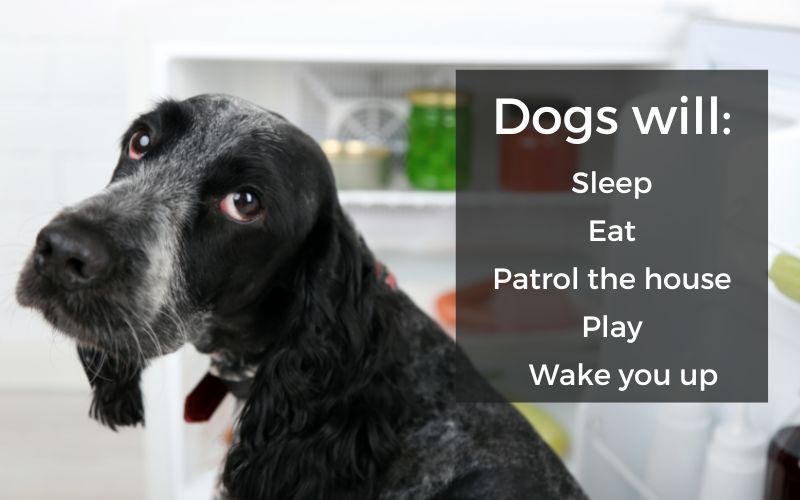
A dog will often wake you up so that he can go out
While it can be frustrating to be awakened in the middle of the night, there’s actually a reason behind your dog’s behaviour.
In the wild, canines typically sleep for short periods during the day and spend much of their time roaming around in search of food.
When your dog wakes you up, he’s often acting out of instinct to go and explore and, of course he may need to go to the toilet too.
Your dog may play with his toys
One of the most common nighttime activities for dogs is playing with their toys.
While this may seem odd to us, it makes perfect sense from a canine perspective.
For dogs, play is not just about having fun; it is also an important way to socialize and relieve boredom or stress.
So if your dog seems restless at night, try giving him a toy to play with.
It just might help him (and you) get a good night’s sleep.
Panting and pacing.
Panting and pacing are common signs of anxiety in dogs.
If your dog seems restless or uneasy at night, it might be because they’re feeling anxious or stressed about something.
Dogs can experience anxiety for a variety of reasons, including separation anxiety (when they’re away from their owner), social anxiety (when they’re around other people or animals), and situational anxiety (when there’s something specific that’s stressing them out) which could be the darkness of the house.
If you think your dog might be anxious, talk to your vet about ways to help them feel more relaxed – there are a variety of options available, from medication to behaviour therapies.
Final Words
As you can see, there are a variety of things that dogs can do at night – from sleeping soundly to chewing on their favourite toy.
So, the next time you find yourself wondering what your dog is up to in the middle of the night, just remember that they could be doing any number of things, including panting and pacing if they’re feeling anxious.
If you’re concerned about your dog’s nighttime behaviour, talk to your vet – they’ll be able to help you figure out what’s going on and how to best help your pet feel comfortable and relaxed.

